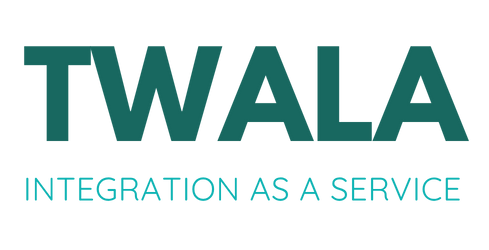From Streamlined to Supercharged: Why Integration Elevates Workflow Automation for South African Businesses

In today's fast-paced South African business landscape, efficiency is paramount. Workflow automation has emerged as a powerful tool to streamline repetitive tasks, reduce errors, and free up valuable human capital. However, simply automating steps within a single system often leaves significant potential untapped. The real magic happens when workflow automation incorporates seamless integration with other applications and data sources. While both offer substantial benefits, understanding the difference and the critical importance of integration is key to unlocking truly transformative results for businesses across South Africa.
The Importance of Workflow Automation: Laying the Foundation
At its core, workflow automation involves using technology to automate recurring business processes. This can range from simple tasks like sending automated email responses to more complex sequences like processing purchase orders or onboarding new employees. The importance of this foundational level of automation cannot be overstated:
- Increased Efficiency: Automating manual tasks significantly reduces the time and effort required to complete them, allowing employees to focus on more strategic and creative work.
- Reduced Errors: Human error is inherent in manual processes. Automation minimizes these mistakes, leading to improved accuracy and data integrity.
- Enhanced Consistency: Automated workflows ensure that tasks are performed the same way every time, leading to more predictable and consistent outcomes.
- Cost Savings: By reducing the need for manual labor and minimizing errors, workflow automation directly contributes to significant cost savings.
- Improved Employee Satisfaction: Automating mundane and repetitive tasks can boost employee morale by freeing them from tedious work.
For businesses throughout South Africa, facing diverse economic pressures and the need to compete effectively both locally and globally, these benefits of basic workflow automation are a crucial starting point for improving operational efficiency.
The Power of Integration: Bridging the Silos
While basic workflow automation optimizes processes within a specific system, integration takes it to the next level by connecting different applications, databases, and services. This allows data and actions to flow seamlessly between systems, creating end-to-end automated processes that break down silos and unlock new levels of efficiency and insight.
Imagine a sales team within a South African company using a CRM system to manage leads. Without integration, when a deal closes, the sales team might have to manually enter the customer information and order details into a separate accounting system. This is time-consuming, prone to errors, and delays the invoicing process.
Now, consider a workflow automation with integration. When a deal is marked as "closed" in the CRM, an automated workflow can:
- Trigger the creation of a new customer record in the accounting system.
- Generate an invoice based on the sales order details.
- Update inventory levels in the warehouse management system.
- Send a welcome email to the new customer.
All of this happens automatically, without any manual intervention. This highlights the critical differences and the amplified importance of integrated workflow automation.
Key Differences Between Basic Automation and Automation with Integration:
| Feature | Basic Workflow Automation | Workflow Automation with Integration |
| Scope | Typically within a single application | Across multiple applications and data sources |
| Data Flow | Limited to the specific system | Seamless data exchange between connected systems |
| Complexity | Generally simpler to implement | Can be more complex initially but offers greater long-term benefits |
| Efficiency Gains | Significant within the isolated process | Exponentially greater across end-to-end processes |
| Data Accuracy | Improved within the system | Significantly improved data consistency across platforms |
| Business Insight | Limited to the data within the system | Provides a holistic view of business operations |
Why Integration is Crucially Important for South African Businesses:
In today's interconnected digital environment, businesses rarely operate using a single software solution. They rely on a suite of specialized tools for CRM, accounting, marketing, project management, and more. Without integration, these systems remain isolated islands of data, hindering efficiency and providing incomplete insights.
For businesses across South Africa looking to scale and compete effectively:
- Integration eliminates manual data entry and the associated errors, saving time and resources that can be reinvested in growth and innovation.
- It provides a unified view of critical business data, enabling better decision-making and strategic planning in a dynamic market.
- It streamlines complex, multi-departmental processes, improving collaboration and reducing bottlenecks, which is vital for agile operations.
- It enhances customer experience by ensuring consistent and timely service across all touchpoints, crucial for building loyalty in a competitive environment.
- It allows businesses to leverage the full potential of their existing technology investments by connecting them in meaningful ways, maximizing ROI.
Conclusion: Embracing the Power of Connected Automation in South Africa
While basic workflow automation offers valuable improvements in efficiency and accuracy, it's the inclusion of seamless integration that unlocks the true potential for business transformation. By connecting their various systems and automating the flow of data and actions, businesses throughout South Africa can achieve a level of efficiency, insight, and agility that is simply not possible with isolated automation efforts.
Investing in workflow automation that prioritizes integration is not just about streamlining tasks; it's about building a connected and intelligent operational ecosystem that drives growth, enhances customer satisfaction, and ultimately provides a significant competitive advantage in the modern South African marketplace. The difference is substantial, and the importance of integration in achieving true business optimization cannot be overstated.
